Jeg tænkte naivt at forbindelsen mellem migration og kriminalitet var indlysende. Imidlertid viste det sig, efter at jeg havde udgivet artiklen og undersøgt emnet yderligere, at tingene, som sædvanligt, forholdte sig langt mere kompliceret og interessant, end som så.
I denne artikel vil vi prøve at forstå forbindelserne, hvis der er nogen, mellem immigration og kriminalitet. For at gøre dette, vil vi gennemgå en række diagrammer, vi vil prøve at tolke dem og, hvad der er vigtigere, vi vil se, hvordan disse data ofte er håndplukkede og fordrejede for at tjene ekstremistiske ideologiske diskurser.
Lad os først tage et blik på hvordan migration opfattes i Europa, hvor immigration klart er blevet den vigtigste kilde til bekymring blandt den gennemsnitlige borger. Den rangere højere end terrorism eller arbejdsløshed.
Hvorvidt denne bekymring er retfærdiggjort betyder faktisk ikke noget på dette tidspunkt, fordi det afslører en vigtig pointe: En majoritet af den Europæiske befolkning er virkelig bekymret over immigration til deres lande, det vil sige, der er en følelsesmæssig belastning. Og vi ved at at forhøjede følelsesmæssige tilstande udgør en frugtbar grobund for skabelse af hysteri, sort/hvid tænkning og ekstremistiske ideologier.
Negative Perception of Immigration in Europe
European people tend to associate immigration with negative effects like dilution of culture, rise in unemployment, misappropriation of social benefits and rise in crime.
Among those deleterious effects, it is actually crime that shows the strongest negative association with migration, as shown in the chart on the right.
Only 10% of EU citizens (purple ellipse) think migration has a positive effect on crime. This survey dates back to 2014, and the figure has probably deteriorated further since then.
The two previous charts only deal with public opinion. So are those opinions based on some hard evidence or are they just the result of propaganda, fear, prejudice, racism?
Immigration and Crime
The correlation between crime and immigration is a highly documented topic. Wikipedia has an extensive page dedicated to it. In the intro provided by this 'authoritative' source, we can read:
A meta-analysis of 51 studies from 1994-2014 on the relationship between immigration and crime in different countries found that overall immigration reduces crimeThe argument above is quoted extensively by liberals in order to prove the benefits of mass migration and multiculturalism. Immigration does reduce crime, most scientific analysis say so, even meta analysis. Case closed.
But if that is the case, how to explain the gap between the negative public opinion about immigration and the positive effects of immigration?
Liberals would answer that it is simple: European Whites are a bunch of racist oppressing colonialists, they don't even appreciate the gift of mass migration that brings diversity, wealth, and security. No wonder Hitler ruled Europe three generations ago.
Before jumping to conclusions, let's check the sources of this meta-analysis.
Most surveys about migration are conducted at a national scale with European countries releasing their results under the form of crime rate per country of origin.
On the right is a chart extracted from such a national survey (Denmark 2015). The other national surveys are very similar. The turquoise vertical line indicates the average crime rate. The purple horizontal arrow on the left separates the 11 countries of origin with a crime rate higher than average from the 19 countries of origin with a crime rate below national average.
Among the 11 countries of origin with high crime rate, 82% (9 of 11) are in majority Muslim and 54% (6 of 11) have been recently bombed by NATO.
You will probably notice that there is a obvious correlation between being a Muslim country and being bombed by the West.
Is this due to a preexisting 'clash of civilizations' as theorized by Huntington, or is it a self fulfilling prophecy where, with enough bombing and suffering, a manufactured clash will be inevitable?
The prevalence of high crime rates among Muslim populations is confirmed by incarceration rates.
In the US, UK, Netherlands and Belgium, Muslim populations are dramatically over-represented in prison populations (see chart on the right).
In France and Spain, the Muslim population represents a whooping 70% of the prisoners, while it represents respectively about 8% and 4% of the national populations.
The above explains why overall migration doesn't increase crime: EU migrants exhibit a low crime rate which compensates for non EU migrants who exhibit a high crime rate.
Ultra-nationalists use this kind of data showing a high crime rate among Muslim populations in order to generalize and label all Muslims as criminals.
This is indeed a gross generalization. To clarify this point let's have a look at crime figures in more detail. Germany provides official figures about crime rates per country of origin. On the right is the chart for manslaughter in 2014 (charts for other kinds of crimes are very similar)
Like in Denmark, the 10 countries exhibiting the highest manslaughter rate in Germany are Muslim. While German natives exhibit a 1.7/100,000 crime rate, Algerians exhibit a rate that is 40X higher.
Now let's look at the figures from a different perspective. The manslaughter rate among Algerians in Germany is 67/100,000. That means that 0.067% of Algerians have been suspected of manslaughter by German authorities in 2014.
Conversely, it means that 99.93% of Algerians living in Germany are not suspected of manslaughter.
So, beyond the hystericizing extremist ideologies that want us to believe that all migrants are either angels or demons, the truth is more nuanced and complex: the vast majority of Muslims are not involved in crimes, although the over-representation of Muslims in crime in European countries is real.
The Real Cause of Criminality
How can this over-representation be explained? Liberals offer an economic explanation. The reasoning goes like this: minorities, including Muslims, are poor, therefore they commit more crime.
The correlation between crime and poverty is very well established. However, correlation is not causation, as shown by Oxford sociology professor Patrick Sharkey:
The relationship between poverty and crime is complex. There is substantial evidence indicating that poverty is associated with criminal activity, but it is less clear that this relationship is causal or that higher levels of poverty in a neighborhood, a city, or a nation necessarily translate into higher levels of crime.Additional surveys conducted in Greece, Russia, and Ukraine confirmed that there is no consistent association between economic status and criminal behavior.
Perhaps the most powerful illustration of this empirical reality comes from the simple observation made by Lawrence Cohen and Marcus Felson several decades ago in introducing their "routine activities theory" of crime. During the 1960s, when poverty and racial inequality were declining in American cities, the crime rate was rising.
The experience during the economic downturn from 2008-2012 provides a more recent example. Despite the rise in poverty and sustained unemployment over these years, crime has not risen in any remarkable way.
The implication is that in order to understand the relationship between poverty and crime it is necessary to move beyond the assumption that more poor people translates directly into more crime.
A concrete example of criminal behavior is the torching of cars that regularly happens in France, the UK or Denmark.
Although no official data is available at a European scale, from national figures we can estimate that about 100,000 vehicles are deliberately burnt in Europe each year.
Such criminal behavior is not economically motivated, there is no material gain to extract from burning a car, but such crimes are very common.
Blaming poverty for crime reveals a core aspect of the liberal ideology. It sees human beings as 'homo economicus', some kind of robotic consumers whose lives are fully determined by economic factors.
This is a purely materialist take on human beings and it ignores all the non-material factors that play a fundamental role: sense of belonging, meaning, education, trust, respect, humility, responsibility.
You might have missed the irony of the postmodernists who claim that everything is a social construct but when it comes to migrants and crime, it suddenly becomes an economic construct.
While Sharkey excludes poverty as a cause of criminality, he emphasizes the prime role played by communities and their influence on individual behavior. Human beings are not economic creatures but social creatures.
Jason Nicholson showed how individuals learn behavior from their social environment: peers, family, media, ... His 'Social Structure Social Learning' theory has been tested in various surveys and has yielded positive results in the context of rape, violence, binge drinking, and digital piracy
The fact is that some European districts have become enclaves, where the police, the firemen, the MDs do not intervene because of the violence they are subjected to. Many schools also have given up on their mission to educate some of the adolescents in such areas.
The state's authority, the rule of law, have disappeared from those places and have been replaced by a new kind of state with its own rules and values.
The two main sources of authority have become drug trafficking networks that preach illegal behavior and disrespect of authorities, and the fundamentalist mosques that preach the prevalence of religious law over national law and the prevalence of the religious community over the national community.
According to the Hungarian government, there are almost 1,000 no-go zones in Europe. They affect many urban areas and are particularly concentrated in 7 large European cities: Paris, London, Berlin, Stockholm, Marseilles, Copenhagen and Brussels.
To be added to the previously mentioned influence of fundamentalist mosques and gangs are the messages relentlessly distilled by the media and the politicians who tend to praise a culture of violence in minority groups (rap culture), and praise division (multiculturalism) and hatred of the white population of European nations, who are depicted as colonialist oppressors.
In such a negative environment we can understand why so many youngsters embrace criminality and we should also be aware of the large number of migrants that haven't yet fallen in this trap.
Hystericization and Division
The liberals have done their job. Their open border policy, anti-Christianity stance and multicultural approach have created a critical mass of non-assimilated migrants and subsequently paved the way for the emergence of two forces: (ultra)nationalism and fundamental Islam.
While liberalism will likely remain strong in media and academics circles, it is likely to be progressively weakened on the political scene as suggested by the victory of nationalists in Hungary, Czechoslovakia, Austria, Germany, Italy and even the UK (the Brexit vote being mostly motivated by anti-immigration sentiment).
The rise of the right in these countries reflect the current situation, but to get an idea of where Europe is headed, it is instructive to look at what kind of individuals (often called 'experts') are invited to appear on the mainstream media.
The role of the media and these self-proclaimed experts seems to be to test and shape public opinion and voting tendencies. In effect, they prepare the Europe of tomorrow.
In this role they air numerous debates on (broadly) three key topics: Islam, immigration, and crime. Most of the time the invited 'experts' are liberals or ultra-nationalists (not nationalists) or fundamental Muslims. This choice in itself reveals exactly what these powerful forces want the citizenry to believe.
In France, a debate about Islam will typically involve an atheist activist facing a proponent of radical Islam, like Tarik Ramadan (the talking head of Qatar funded Muslim brotherhood). So the two black and white options for the type of society that we can have is clear: you either champion a dry nihilist or a bearded Islamist. You'll either end up in the USSR or in Saudi Arabia.
There is no third way, no balanced approach, no room for moderate Islam, no room for a balance restraint on sexuality, no room for peacefully co-existing religions and democracies. It's either one extreme or the other, despite the fact that both are highly destructive to individuals and societies.
In the same vein, a debate about immigration will typically oppose a globalist to a ultra-nationalist. The former will praise open border policies and the virtues of diversity and multiculturalism, while the latter will demonize any kind of immigration and reject any kind of religious or ethnic plurality.
Again no alternatives between those two extremes are offered. No room for a controlled immigration, for cultural assimilation that transcends ethnic differences, for people from various origins living together while respecting each other, like Europe has been doing since the middle of the 19th Century.
Crime among migrants is addressed with the same extremist approach. On one side, you'll typically have a liberal who either denies migrants' crimes or justifies them by unfair poverty or even vengeance due to decades of colonialism. On the other side will be an ultra-nationalist, for whom all migrants are criminals and all criminals are migrants, and who concludes that migrant populations, particularly Muslim, are fundamentally incompatible with Western democracies.
Again, there's no room for a balanced approach which acknowledges the correlation between immigration and crime but doesn't forget that a majority of immigrants are not criminals.
While liberalism, ultra-nationalism and fundamentalism may seem to be opposing ideologies, they are very similar in essence. They are extreme and dividing ideologies that erase any nuance, any individuality.
People are exclusively judged according to some arbitrary factors: gender, ethnicity, religion. An over-simplified morality is rising, where the goodness or the badness of an individual is not based on who he is, what he thinks and what he does, but on the color of his skin and the name of his God.
From this perspective, liberals, ultra-nationalists and fundamentalists defend the same xenophobic ideology. Liberals demonize white populations because they represent domination and oppression, the ultra-nationalists demonize the migrant populations by depicting every single migrant as a criminal barbarian, while the fundamentalist demonizes white populations because they are decadent infidels.
Those three extremist stances serve the same goal: dividing European societies. The clash of civilization is being engineered in Europe and the victims of this clash will be both the European native and the immigrants. While they destroy each other, none will realize that they are both puppets and sacrificial victims of a grand nihilistic plan aimed at eradicating Europe as it today exists.
Conclusion
The clash of civilizations that has been thoroughly orchestrated in Europe for years is not a foregone conclusion. Several simple measures could be implemented to prevent it: controlling borders, closing fundamentalist mosques, banning foreign funding of mosques, supporting and promoting moderate Islam leaders, reinstalling legitimate authority in no go zones, dismantling gangs, ensure prisons are not places of rampant radicalization. If successfully implemented, these measures would, in turn, go a long way to removing the the problem of ultra-nationalism which is largely a reaction to extremist liberal immigration and myopic cultural diversity policies.
But of course those simple measures can only be implemented by the European politicians and technocrats, who seem determined to act against the will of the people they are supposed to represented, and bring Europe to the brink of a civil war.
All that is needed for a civil war is to divide a country in two belligerent groups, two opposing armies. Ultra-nationalism and fundamentalist Islam are the prime candidates. The two best antidotes to those extremist ideologies are their moderate counterparts: nationalism and moderate Islam.
As a direct consequence, two questions will determine the future of Europe. What kind of Islam will prevail in Europe: moderate or fundamentalist? What kind of nationalism will prevail: moderate or ultra-nationalist? The answer to those questions will determine what path we will tread, that of reconciliation or division.
Yet danger lurks around every corner in such an endeavor. If Europe attempts to follow a path of reconciliation, we should expect a few false flag terror attacks ascribed to Muslims, and further punitive wars against Muslim countries, to sufficiently repolarize European societies, reinforce ultra-nationalist and fundamentalist ranks and give the psychopathic elites the cherished 'clash of civilizations' that they have apparently been working hard for for quite some time.

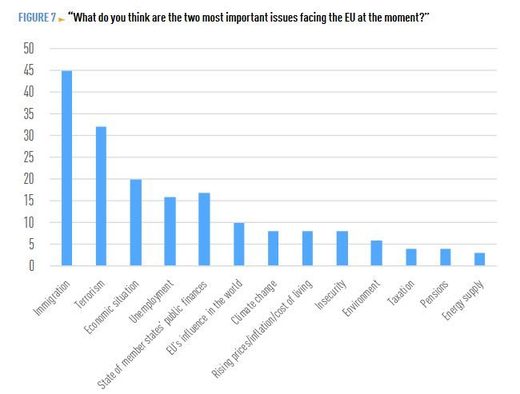
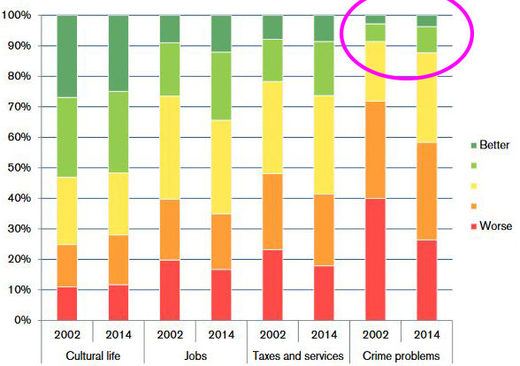
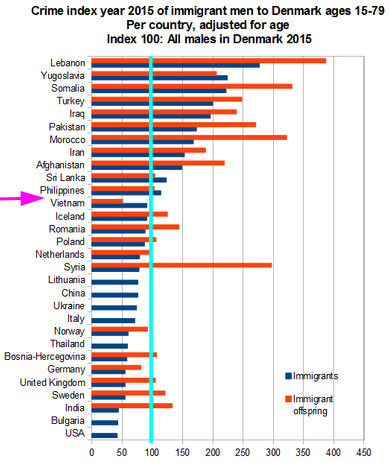
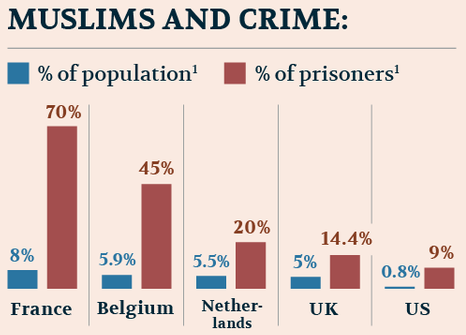
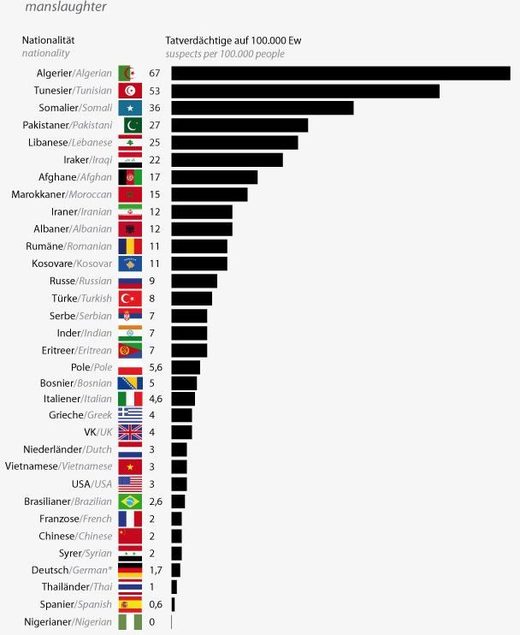
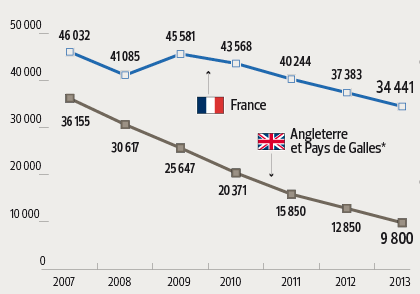
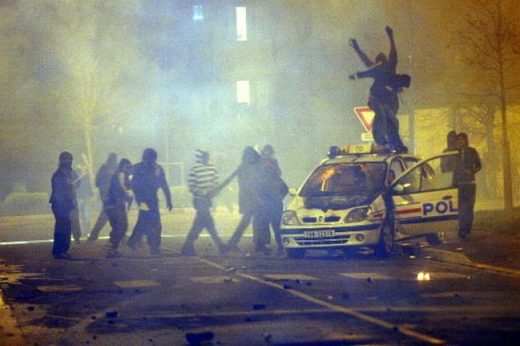
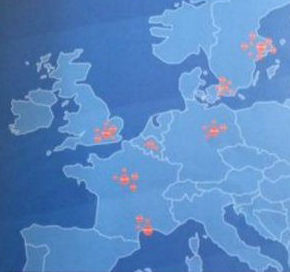
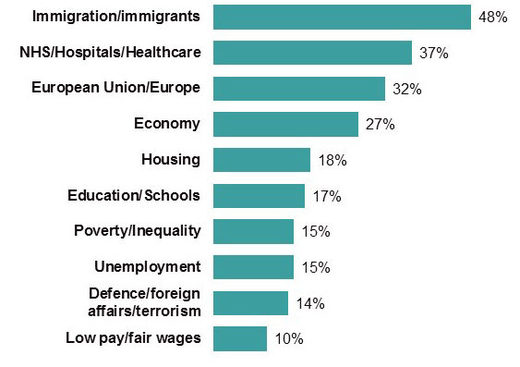
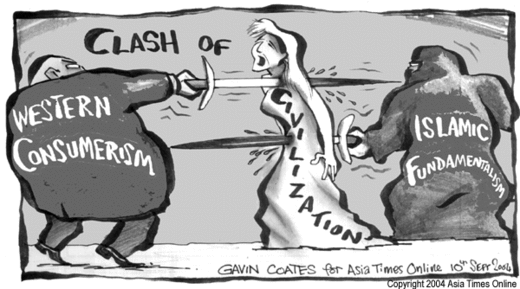



Læserkommentarer
dig vores Nyhedsbrev